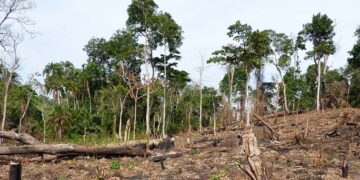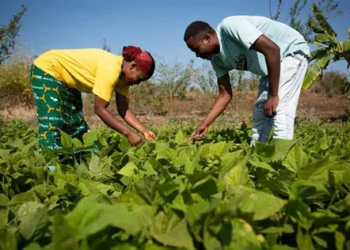OPINION
Youth unemployment is a growing crisis in Uganda, with serious consequences for economic
stability and social cohesion. According to the Uganda Bureau of Statistics (UBOS) 2024
report, young people make up 77% of the population. As the population increases, so does
the demand for jobs especially among youth who leave school each year only to face limited
opportunities.
Uganda’s struggle with youth unemployment is further worsened by environmental
challenges. In recent years, the country has been hit by severe floods and landslides in
Kasese, Manafwa, and Bududa, and prolonged droughts in the Northern region. These
climate-related disasters have deepened socio-economic problems such as food insecurity
and joblessness, leaving young people more vulnerable than ever.
Each year, thousands of graduates from universities across Uganda struggle to find
meaningful employment. This is often due to a mismatch between their academic training
and the needs of the job market. Moreover, rapid population growth has outpaced the
creation of decent jobs. Limited access to finance and weak infrastructure further
undermine the ability of young people to start their own businesses or engage in
entrepreneurship.
However, clean energy innovations offer a hopeful and practical solution to these
intersecting challenges. Innovations in clean energy such as briquette production and solar
energy systems are emerging as promising avenues for youth employment and sustainable
development.
Training young people in this technology empowers them to become entrepreneurs,
creating small businesses involved in producing and selling briquettes. This not only
generates income but also helps reduce deforestation and improves public health by
replacing wood and charcoal with cleaner fuel alternatives.
The solar energy sector is another rapidly expanding field with potential to absorb many
unemployed youth. From solar panel installation and maintenance to project management
and sales, the industry presents a range of job opportunities. While startup capital remains a
challenge, integrating solar training into education systems can equip youth with the skills
they need to succeed in this growing market. At the same time, solar energy reduces
dependence on fossil fuels, cuts greenhouse gas emissions and supports environmental
conservation.
Investing in youth-led clean energy initiatives is a win-win. It creates jobs, fights climate
change, and promotes a more resilient and inclusive economy. Uganda has the potential to
transform its unemployment crisis into an opportunity by empowering its youth with skills
and resources to lead in the clean energy transition. With the right support through training, access to finance, and policy reforms we can unlock the potential of young Ugandans to
drive innovation, protect the environment and build a sustainable future for all.
By Caroline Kinkuhaire,
Gender and Advocacy Officer
Youth For Green Communities(YGC)
Email: carolinekinkuhaire12@gmail.com
Tel : +256 784 364 001








































